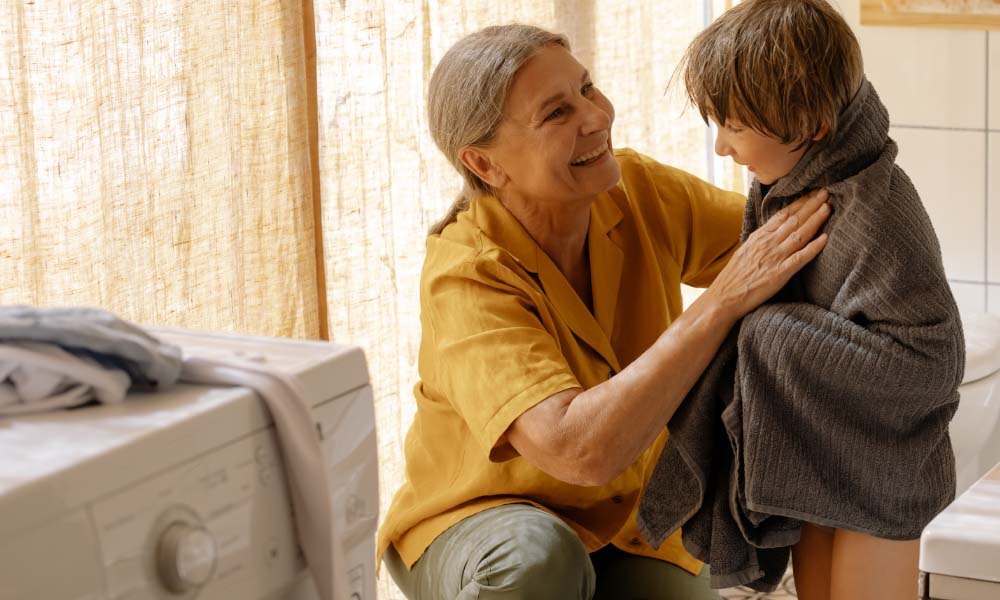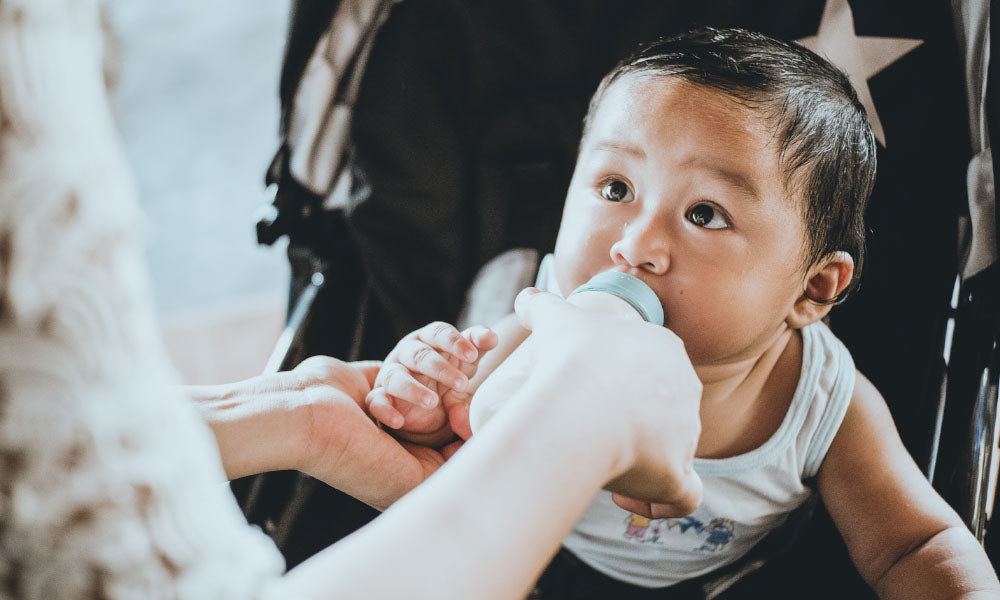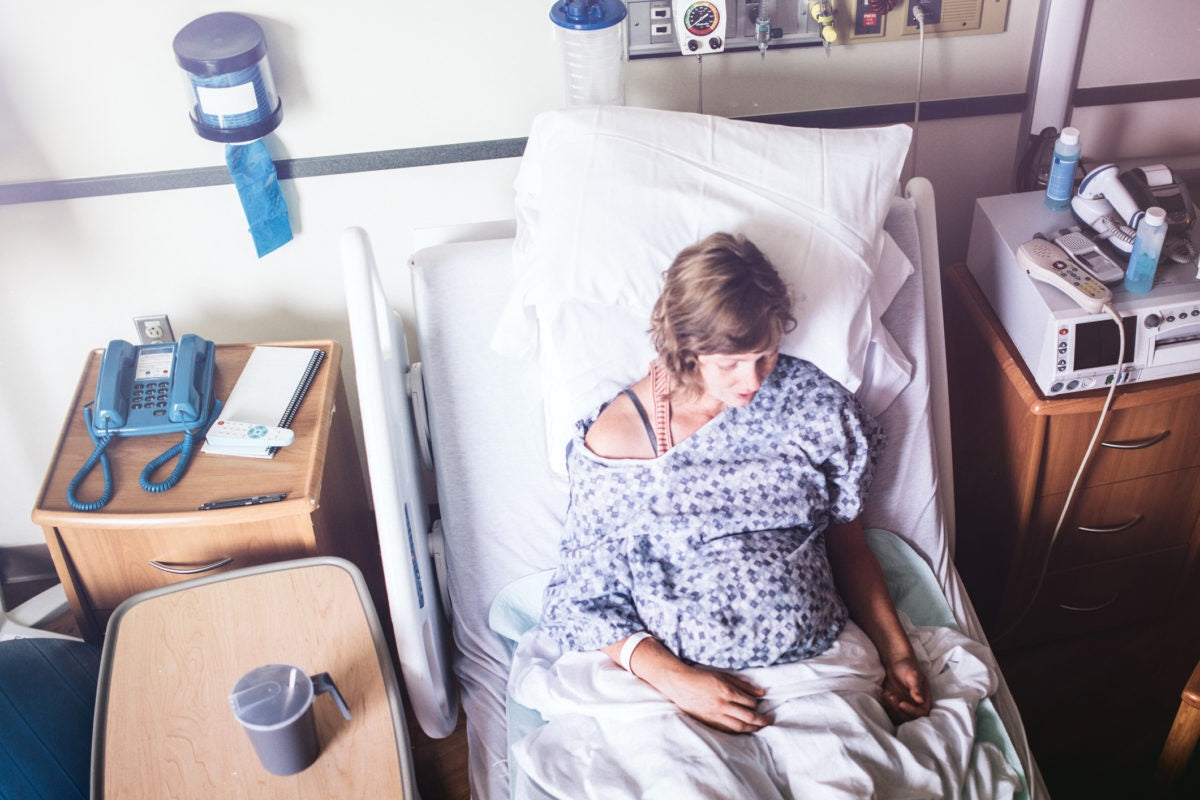On my grandma’s birthday this year, I called her at 6 p.m. When she didn’t pick up, I left a voice message wishing her a feliz cumpleaños and saying that I would try calling her later in the evening.
A couple hours later, my dad was on the phone with her and passed me the phone so I could wish her a happy birthday: “Hi Abis, Happy birthday!” “Why haven’t you called me? You said you were going to call me?” “Well I did call you, but you didn’t pick up.” “No, I don’t mean today, I mean before. The last time you called, you said you would call me more often.”
I didn’t know what to say. She was right, I had promised to call more often, and I hadn’t talked to her in a few months. That made me feel awful. Though she said it in more or less of a joking manner, I knew it was more than a lighthearted guilt-trip.
My grandmother on my dad’s side lives with one of her sons in Nogales, Arizona, a small town bordering Mexico. You can see the fence that divides the two countries from their backyard. My parents moved my sister and me to Boise, ID, when we were infants. Over 1,000 miles away, I only get to see my extended family once or twice a year, so phone calls are an important means of communication.
This is especially true for my paternal grandmother, who has severe arthritis and shoulder problems. She’s seen many specialists, but most days she’s in too much pain to leave her room. She has a lot of support around her, but I know how happy it makes her when she hears from her long-distance family. Most of my family lives in Arizona and Mexico, including my other grandparents.
I love them and I think of them often, but I get so caught up in my own routine that I don’t make the time to call them — though I easily could. The fact that I can make a difference in my grandma’s life and I don’t, for whatever reason, is unacceptable.
Worse, this issue goes far beyond myself and my family. Many elderly people in the American community feel neglected as a result of their age. The population of adults over 65 is currently 47.8 million and is expected to double by 2050, and the overall attitude in the USA towards senior citizens paints a negative image of them. This seeps into their work prospects and mental health. The bridge to making a positive change starts with the way we treat our parents and grandparents.
Ageism in the USA
Ageism as a societal problem in the USA affects millions of people in both obvious ways, like unnatural beauty standards, and unexpected ones, such as lower employability for those over 40. American culture is known for treating its older citizens unfairly, which has permeated its way into almost every facet of life. Many Americans do not seem to understand that aging is a normal biological transition.
This leads to unhealthy and unattainable expectations for women to achieve, like having an unwrinkled, fat-free, and flawless body; and for men to have a magical six packs and biceps that can lift two cars and a small house.
Not surprisingly, this manifests itself in a negative portrayal of those who have entered the stage of “growing old.” Anyone 40 years old or older (and sometimes younger), can face age discrimination. One of the most visible effects of age discrimination is negative bias when applying to jobs. Currently, baby boomers face unrelenting ageism when looking for a job. Though it is illegal for employers to favor candidates based on age under the Age Discrimination in Employment Act (ADEA), many job seekers over the age of 40 find it difficult to find a job.
Treatment of Seniors
Of course, age discrimination only worsens the older a person gets. Seniors in society are affected by the way others treat them on a daily basis. Offhand comments like calling a senior “adorable” or speaking to an adult like you would a child harbors fundamental prejudices against older people. This type of treatment is not only unfair, but it leads to depression.
Depression in seniors is often unique as it’s commonly comprised of anhedonia, the lack of enjoyment in life, rather than sadness. Older people can feel like their life is not worth living due to poor health and can think of themselves as mere burdens to their family While nursing homes can sometimes provide a feeling of community and belonging, they can also work to further isolate seniors in society. Studies found 40 percent of patients in nursing homes have depression, but not many will admit to it.
Our responsibility
The widespread issues with the treatment of elderly people in our culture are not acceptable. Even in our local communities, making a conscious effort to treat older people with respect is one helpful step to ending negative attitudes towards those growing old.
Not only is this beneficial to those around us, but we should consider how we want to be treated when we grow old. Though certain careers such as Adult Gerontology Primary Care Nurse Practitioners (AGPCNP) are designed to eliminate age discrimination, it is important to realize the unlimited potential everyone has to ameliorate the treatment of the elderly in their own communities. This can be as simple as making eye contact with a senior, acknowledging what they say, and making an effort not to talk down to them – basically treat them like a regular person, which they are.
Making the effort to figure out even small ways to do so can seem daunting; Americans are largely defined by individualism. We grow up in a hurry to move out of the house and become independent. We want our own car, apartment, and job – and we don’t like to rely on others. We focus on our own lives and get caught up in the madness: get up, go to work, run some errands, relax however possible, go to bed, and start over. We all feel it.
However, it’s important to sometimes pause the Netflix, get off Facebook, and make an effort to reach our grandparents. When I think of mine, I think of how my maternal grandfather keeps photos of us in his wallet and says a prayer for his grandchildren every single night before he goes to sleep. I think of how my maternal grandmother sends us weekly pictures of her garden. Most recently, I think of how my paternal grandmother always asks me to call her more often.
Though it takes time to make widespread changes in society, making a difference to your loved ones can be as simple as not taking your grandparents for granted. From now on, I will make it a point to reach out to my long-distance family, especially my grandparents.



